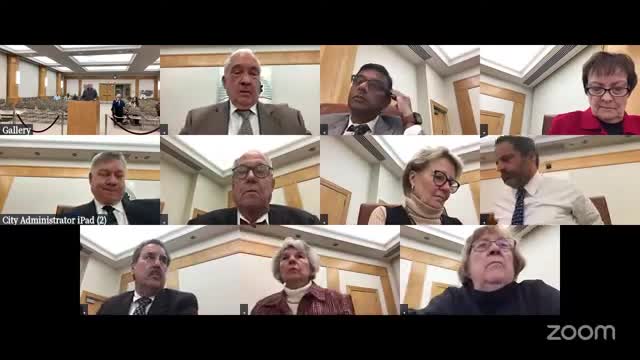Chesterfield council adopts Downtown Chesterfield Special Business District, 6-1
Get AI-powered insights, summaries, and transcripts
Subscribe
Summary
The Chesterfield City Council voted 6–1 on Jan. 8 to adopt Bill 3524, creating the Downtown Chesterfield Special Business District and authorizing a special property tax for properties inside the district.
The Chesterfield City Council voted 6–1 on Jan. 8 to adopt Bill 3524, creating the Downtown Chesterfield Special Business District and authorizing a special property tax that will be applied to properties inside the district.
The ordinance allows the special-business-district tax to be assessed on land value only through tax year 2029; after that date the tax will apply to full assessed value (land and improvements). The council set a maximum rate of $0.85 per $100 of assessed valuation; the exact annual rate will be set by the city and the district’s advisory board.
City Administrator (unnamed) said the tax "will be paid by the property owners within the district, within downtown Chesterfield," and that it "will be used only solely for the purposes described in the petition and for those services within the downtown Chesterfield, police, public works, parks, administration oversight." He told the council the change to tax land value only through 2029 was intended to avoid a disproportionate burden on two parcels that currently have intact improvements while nearby parcels are demolished for redevelopment.
Tim Lowe, senior vice president of development for The Steenberg Group, spoke in favor of the measure on behalf of the petitioners. Lowe said the special business district framework helped facilitate recent deals in the redevelopment area: "Without a threat of condemnation, we would have not got Cheesecake Factory out," he said, describing how the threat of condemnation produced negotiation leverage for property acquisitions needed for downtown redevelopment.
Council members amended the bill’s text on Jan. 8 to clarify the land-only assessment through 2029; that text amendment passed on voice vote, 7–0. After additional discussion the council approved the final (second) reading of Bill 3524 on a 6–1 roll-call vote, with Council member Hurd voting no.
Procedural history noted at the meeting: the first reading of Bill 3524 was conducted Oct. 7, 2024; council members and staff said the current ordinance language reflects changes requested by property owners in the petition and the council.
The ordinance creates an advisory board for the district that will include city department heads and two property-owner representatives to advise the council on expenditures and the annual tax rate. The council said proceeds are intended to fund downtown services attributable to the new development — for example, additional police, public works and park services — so costs are not spread across all city taxpayers.
Council member Hurd was the lone dissenting vote on the final reading; no further action was scheduled at the meeting.
